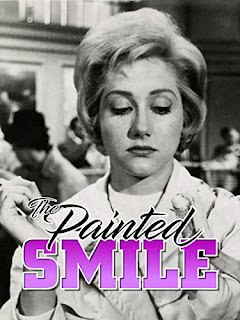An adjective can sum up a scene, a country, a world. You might call it Greeneland.
Intoxicatingly drab. (Matthew Sweet on British B movies)
Places with a breathtaking ordinariness. (imdb on a film made in LA in 1950)
Banal suburban ennui. (Lars Kretschmer on a shuttered Turkish shop)
I found this monstrous featureless building next to the rice paddies in South Korea interestingly bleak. (Daniel Blackburn)
Gray suits, gray filing cabinets, gray skies, gray food, gray childhoods, gray marriages. (lareviwofbooks.org on John Le Carré)
Green Line bus stops. Factory sports fields lined with poplars. Boarding kennels, down-at-heel riding schools, damp bungalows in wizened orchards. I was so happy. Is it still unloved, that landscape? I loved it. (Alan Bennett, The Old Country)
Looking down across the grey roofs, until my eyes for some reason lit on one stony "back" out of the many, where the face of a middle-aged man was presented against a window pane ... I remembered saying to myself with astonishment, "That man is happy—completely happy." (Graham Greene)
Tina Brown vividly conjures "the fading walk-up flats in far-flung London postal codes of former courtiers and retainers": their tables crowded with "tasteful knickknacks," their stair carpets reeking of "downward mobility and pointless, genteel sacrifice." (NYT on Tina Brown’s The Palace Papers)
Luigi's Pin-Table business is delightfully dingy, filled out with slot machines and macabre looking games such as a laughing sailor or Konki The Clown: Fortune Teller. (imdb.com on Street of Shadows)
Throughout this novel, there is a certain nihilistic dreariness hanging over all the characters. Goodreads on Georges Simenon’s Lock No. 1)
I love England... The true England of nature. The trees, hedges, grass and lie of the land... But also the transitory England with its railways, towns and lighted streets. And above all, the lit pavements shimmering with rain. (Clement Attlee)
“This is the England of arterial and by-pass roads,” wrote JB Priestley in English Journey, “of filling stations and factories that look like exhibition buildings, of giant cinemas and dance-halls and cafés, bungalows with tiny garages, cocktail bars, Woolworths, motor-coaches, wireless, hiking, factory girls looking like actresses, greyhound racing and dirt tracks, swimming pools, and everything given away for cigarette coupons.” (The Guardian article – about poltergeists – adds “roadhouse pubs and electricity pylons”.)
Outlandishly banal, numbingly tedious, completely devoid of stylistic flair; plodding, matter-of-fact prose; either a postmodern master or a talentless nobody. (Critics on Sylvia Smith’s Misadventures. She said she intended her books to be “hilariously funny”.)
I feel at home in airports and on trains and planes. I have plenty of time to read and "no choice" but to eat junk food. (@adamkotsko)
I really enjoy just existing in hotels. The long identical hallways. The soulless abstract art. The weird noises the air-conditioner makes. Strange city lights in the window. Six storeys off the ground. Strangers chatting in the hall. Nothing in the dresser. No past, but an infinite present. (All over Twitter.)
God I just want to go to a hotel so badly. Just one night! I want to swim in a hotel pool and eat at their overpriced restaurant and then order a nightcap through room service. (@anne_theriault)
Arriving into English train stations makes me think of Eastern Europe in the 70s. (@CitizenNate)
Featureless suburban lounges, grimy city streets and cheerless hotel rooms. They depicted a Britain of amazing crumminess... a young woman and her pimp drinking mugs of milky tea around a Formica-topped kitchen table. (Matthew Sweet on 60s exploitation films in Shepperton Babylon. He adds the "anonymous actors" were filmed under a "flat, unflattering light".)
I don’t want to transcend the commonplace. I love the commonplace. (Philip Larkin)
More here, and links to the rest.

No comments:
Post a Comment